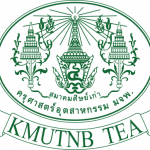A Nation Forged Anew Tracking breaking news in nigeria today 247 and charting a course towards endur
- A Nation Forged Anew: Tracking breaking news in nigeria today 24/7 and charting a course towards enduring stability.
- Political Developments and Governance
- Economic Outlook and Challenges
- The Impact of Oil Price Volatility
- Security Concerns and Regional Stability
- Social Issues and Development
A Nation Forged Anew: Tracking breaking news in nigeria today 24/7 and charting a course towards enduring stability.
The landscape of Nigeria is constantly evolving, and staying informed about breaking news in nigeria today 24/7 is crucial for understanding the dynamic changes impacting the nation. From political developments and economic shifts to social issues and security concerns, a continuous stream of information defines the Nigerian experience. This article delves into the significant events shaping Nigeria, analyzing their implications and charting a course towards enduring stability.
Nigeria, a nation of over 200 million people, boasts a vibrant culture and significant economic potential. However, it also faces substantial challenges, including insecurity, corruption, and infrastructure deficits. Timely and accurate information is paramount for citizens, policymakers, and the international community to navigate these complexities effectively and foster positive change.
Political Developments and Governance
Recent months have witnessed a flurry of political activity in Nigeria, with implications for the country’s governance and democratic processes. Discussions surrounding electoral reforms, constitutional amendments, and power-sharing dynamics dominate political discourse. The Independent National Electoral Commission (INEC) faces ongoing scrutiny regarding its preparedness for future elections and its ability to ensure free and fair polls. High-profile defections between political parties also signal a shifting landscape.
The efforts to strengthen anti-corruption measures remain a top priority. Allegations of corruption continue to surface, prompting investigations and calls for greater transparency. Civil society organizations play a vital role in holding government officials accountable and advocating for reforms to promote good governance and transparency. The fight against corruption remains a significant obstacle to national development and requires sustained commitment from all stakeholders.
Regional security challenges also heavily influence political decisions. The ongoing conflict in the North-East, involving Boko Haram and ISWAP, demands continued military intervention and humanitarian assistance. Addressing the root causes of the conflict, such as poverty and lack of education, is vital for achieving lasting peace and stability.
| All Progressives Congress (APC) | Economic Diversification & Security | Dominant in most regions |
| People’s Democratic Party (PDP) | Restructuring & Good Governance | Strong in the South-South and South-East |
| Labour Party (LP) | Youth Empowerment & Social Justice | Growing Urban Support |
Economic Outlook and Challenges
Nigeria’s economy, heavily reliant on oil revenues, faces significant challenges. Fluctuations in global oil prices pose a volatile risk to government earnings and national budget. Diversifying the economy and investing in non-oil sectors, such as agriculture, manufacturing, and technology, are critical for long-term sustainable growth. The government has undertaken measures to promote foreign investment and improve the ease of doing business.
Inflation remains a persistent concern, eroding purchasing power and impacting the cost of living for ordinary citizens. The Central Bank of Nigeria (CBN) implements monetary policies to control inflation and stabilize the naira exchange rate. However, external factors, such as global supply chain disruptions, also contribute to inflationary pressures. Addressing these economic challenges necessitates a multifaceted approach involving fiscal discipline, structural reforms, and strategic investments.
The country’s infrastructure deficit continues to hinder economic progress. Inadequate power supply, poor road networks, and a lack of efficient transportation systems impede business activities and drive up costs. Investments in infrastructure development, particularly in the energy and transportation sectors, are essential for attracting foreign investment and unlocking economic potential.
- Agricultural Reform: Focusing on smallholder farms and value-chain development
- Industrialization: Promoting local manufacturing and reducing import dependency
- Digital Economy: Investing in broadband infrastructure and IT skills
- Energy Transition Exploring renewable energy sources such as solar and hydro
The Impact of Oil Price Volatility
The Nigerian economy remains heavily reliant on oil revenue, making it particularly sensitive to fluctuations in global oil prices. When oil prices rise, the government enjoys increased earnings, which can be used to fund public services and infrastructure projects. However, a decline in oil prices can lead to budget shortfalls, economic recession, and social unrest. Diversifying the economy by investing in other sectors, like agriculture and manufacturing, is crucial for reducing this vulnerability.
The impact of oil price volatility is not limited to the government’s revenue. It also affects the country’s exchange rate, inflation rate, and overall economic stability. A decline in oil prices can lead to a devaluation of the naira, making imports more expensive and fueling inflation. This can erode purchasing power and increase poverty rates. Sound macroeconomic management and fiscal discipline are essential for mitigating the impact of oil price fluctuations.
Nigeria’s dependence on oil also has environmental consequences, particularly in the Niger Delta region. Oil spills and gas flaring pollute the environment and harm local communities. Transitioning to a more sustainable energy mix, including renewable energy sources, is essential for protecting the environment and ensuring long-term economic growth.
Security Concerns and Regional Stability
Nigeria faces a multitude of security challenges, ranging from terrorism and banditry to communal conflicts and farmer-herder clashes. The ongoing insurgency in the North-East, carried out by Boko Haram and ISWAP, continues to pose a significant threat to civilians and destabilize the region. The government has deployed military forces and implemented various counter-terrorism strategies to combat the insurgency.
Banditry has emerged as a major security concern in the North-West, with armed groups terrorizing rural communities, abducting people for ransom, and disrupting economic activities. Addressing the root causes of banditry, such as poverty, unemployment, and lack of access to justice, is crucial for achieving lasting peace and security. Strengthening law enforcement agencies and improving border security are also essential.
Communal conflicts and farmer-herder clashes, often fueled by competition over land and resources, exacerbate existing tensions and contribute to instability. Promoting dialogue, mediation, and conflict resolution mechanisms is critical for preventing and resolving these conflicts. Addressing the underlying socioeconomic factors that contribute to these clashes is also essential for fostering peaceful coexistence.
- Enhanced Security Cooperation: Strengthening collaboration between security agencies and intelligence services
- Community Policing: Engaging local communities in crime prevention and security initiatives
- Border Control: Enhancing border security to prevent the influx of arms and foreign fighters
- Youth Empowerment: Providing economic opportunities for young people to deter them from joining armed groups
Social Issues and Development
Nigeria, despite its economic potential, grapples with significant social issues. Poverty remains widespread, particularly in rural areas, with millions of Nigerians living below the poverty line. Improving access to education, healthcare, and basic infrastructure is crucial for reducing poverty and improving the quality of life for all citizens. Targeted social safety net programs can provide support to vulnerable groups.
Healthcare system faces numerous challenges, including inadequate funding, a shortage of skilled personnel, and limited access to essential medicines. Investing in healthcare infrastructure, training healthcare workers, and improving healthcare financing are essential for strengthening the healthcare system and ensuring access to quality healthcare for all.
Education rates are also far from ideal, with millions of children out of school, particularly in the North. Addressing constraints such as insecurity, cultural norms, and infrastructural gaps in access to schools is necessary. Investing in education infrastructure, teacher training, and scholarships are essential for expanding access to quality education.
| Poverty Rate | 40% | 20% |
| Literacy Rate | 62% | 80% |
| Life Expectancy | 55 years | 70 years |
Navigating the complexities of a rapidly changing Nigeria demands a nuanced approach to information consumption and analysis. Continuous monitoring of breaking news in nigeria today 24/7, coupled with in-depth assessment of ongoing developments, is crucial for building a more informed and resilient society. Emphasis on good governance, economic diversification, regional stability, and social development will pave the way for a brighter future.



